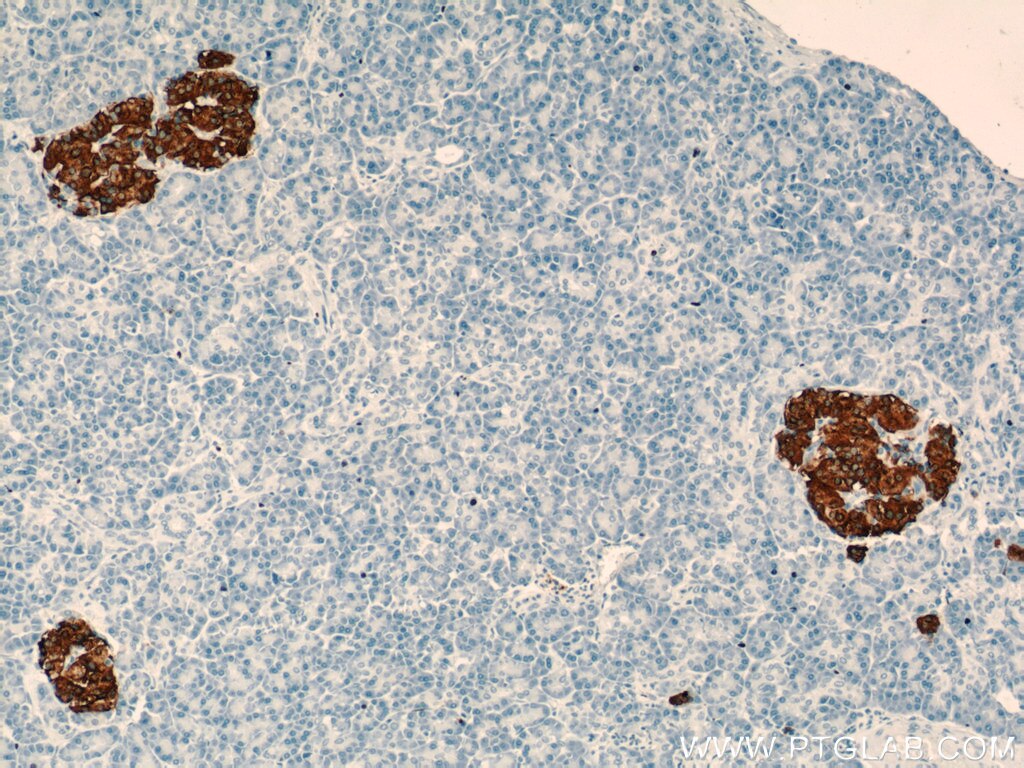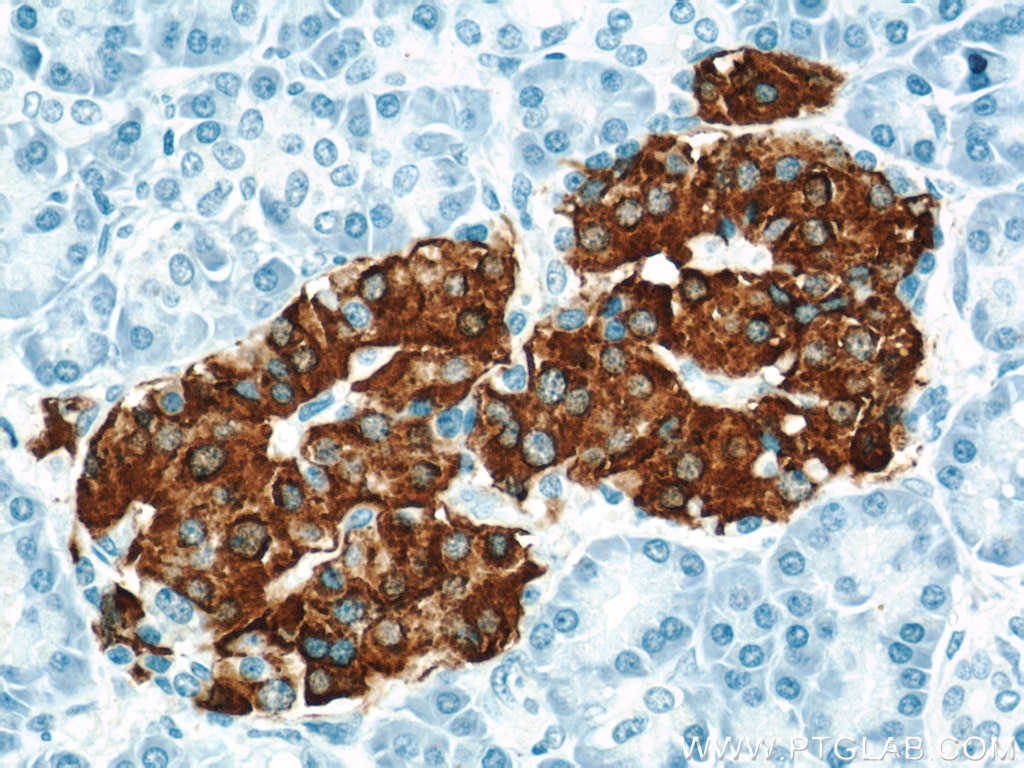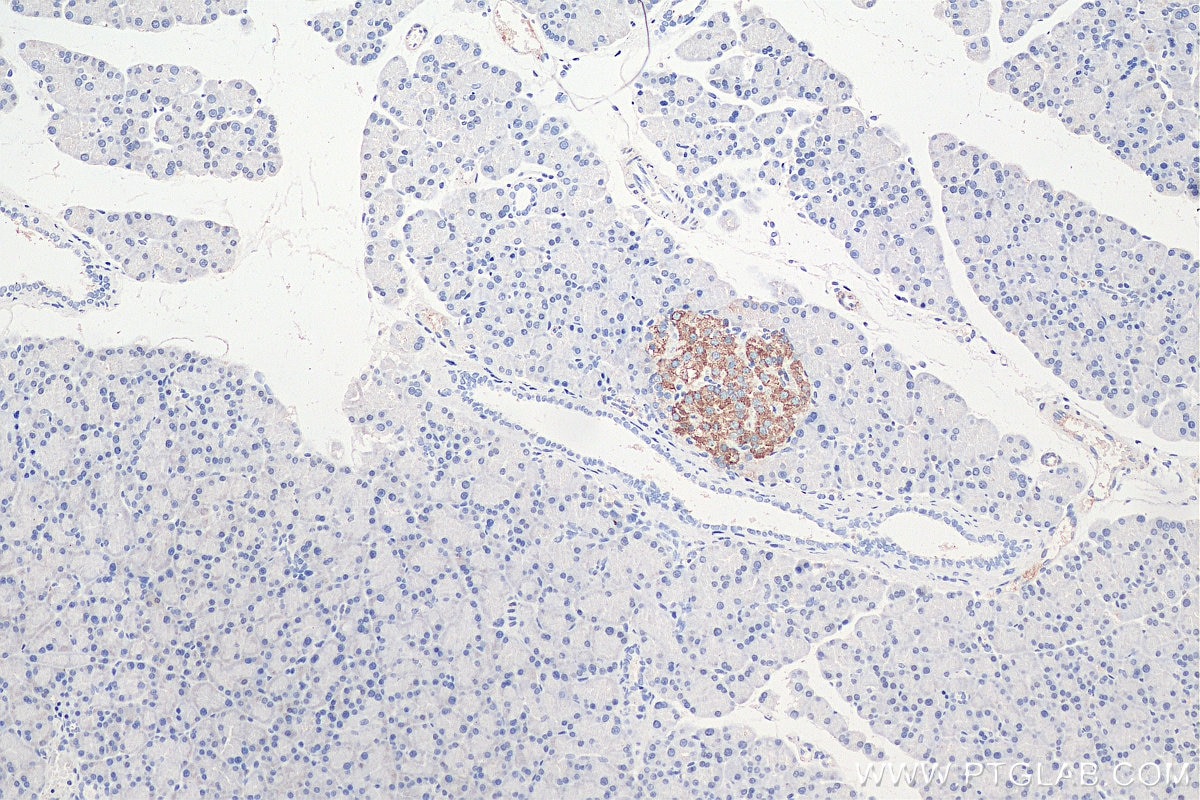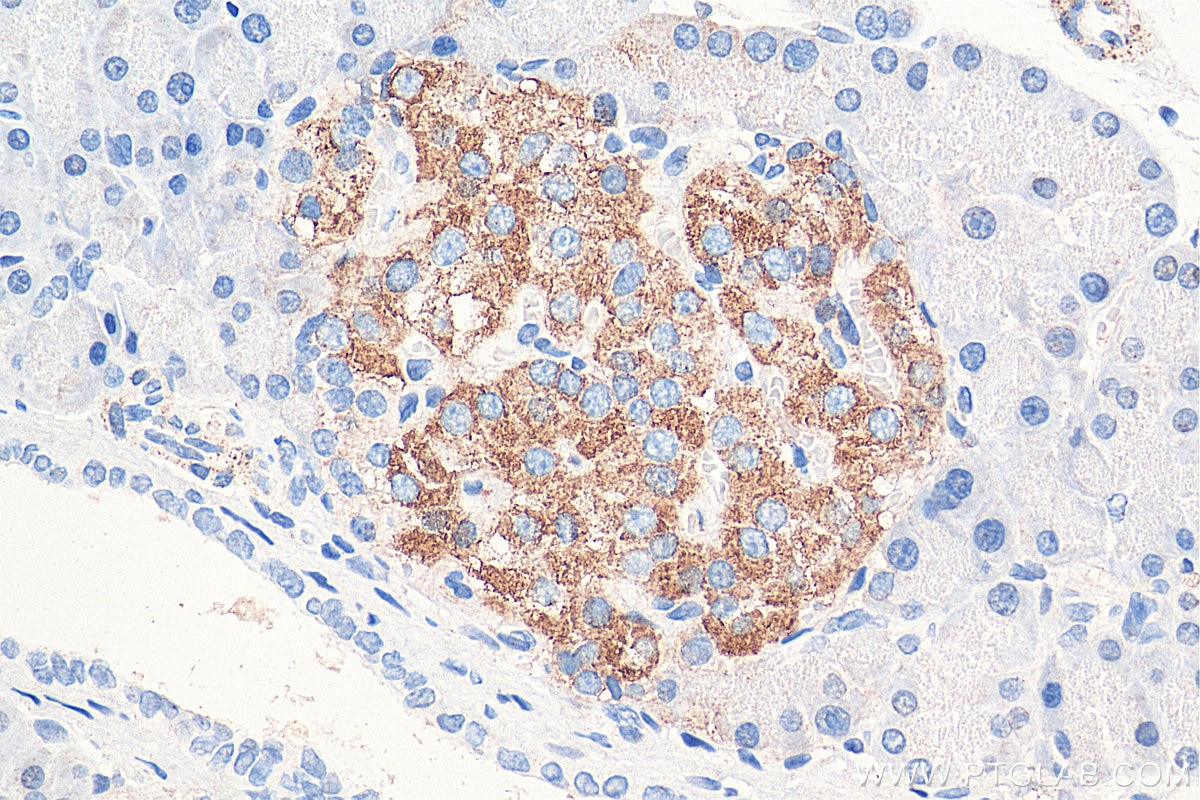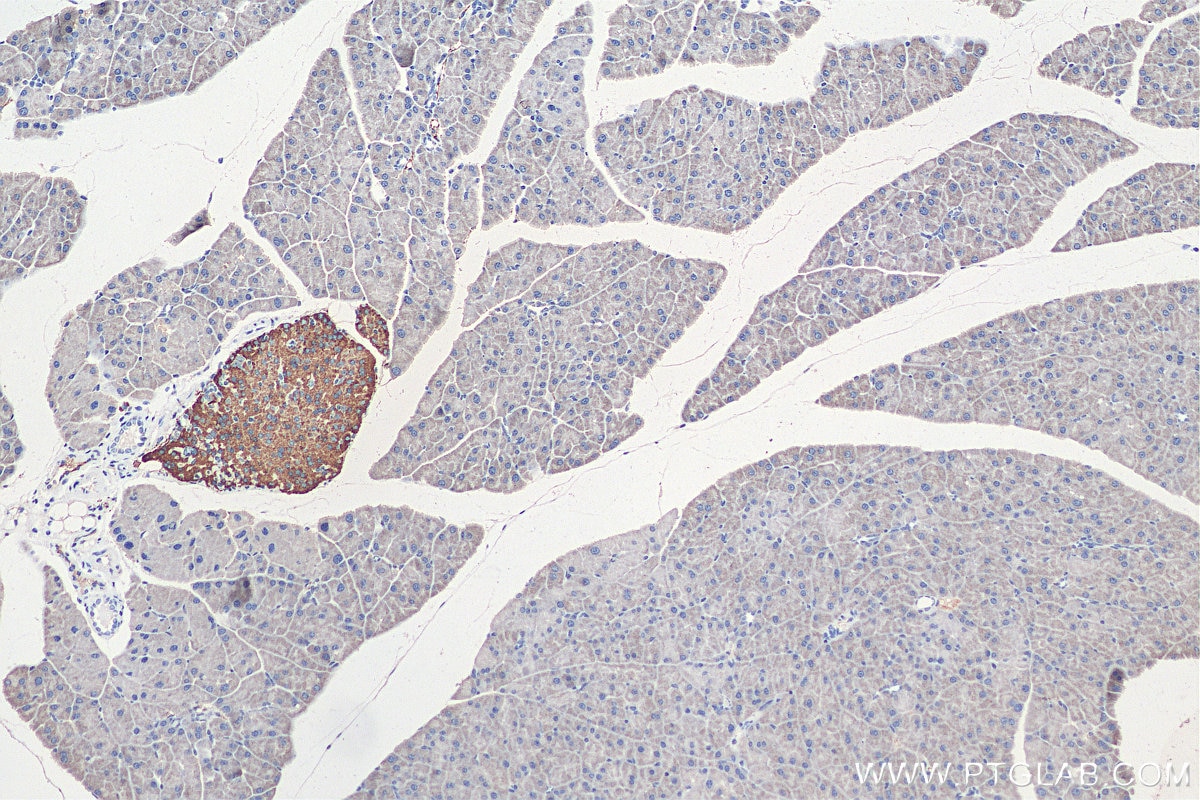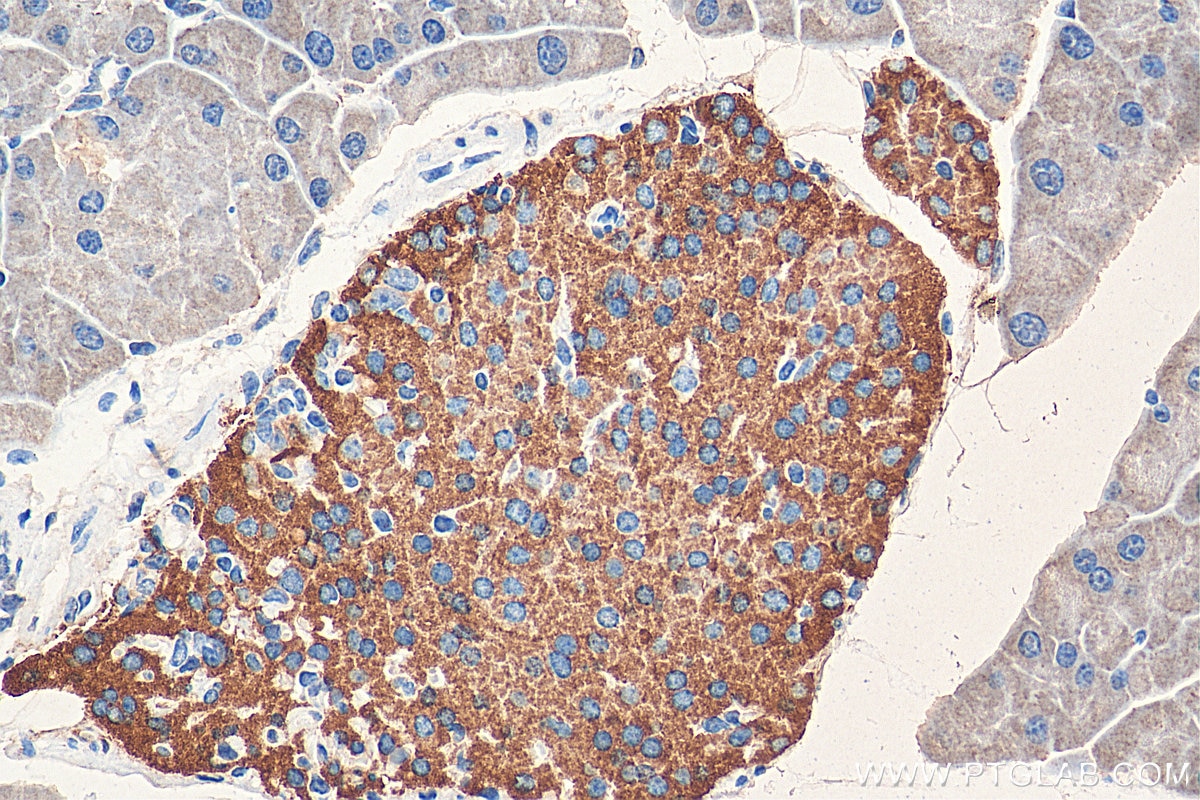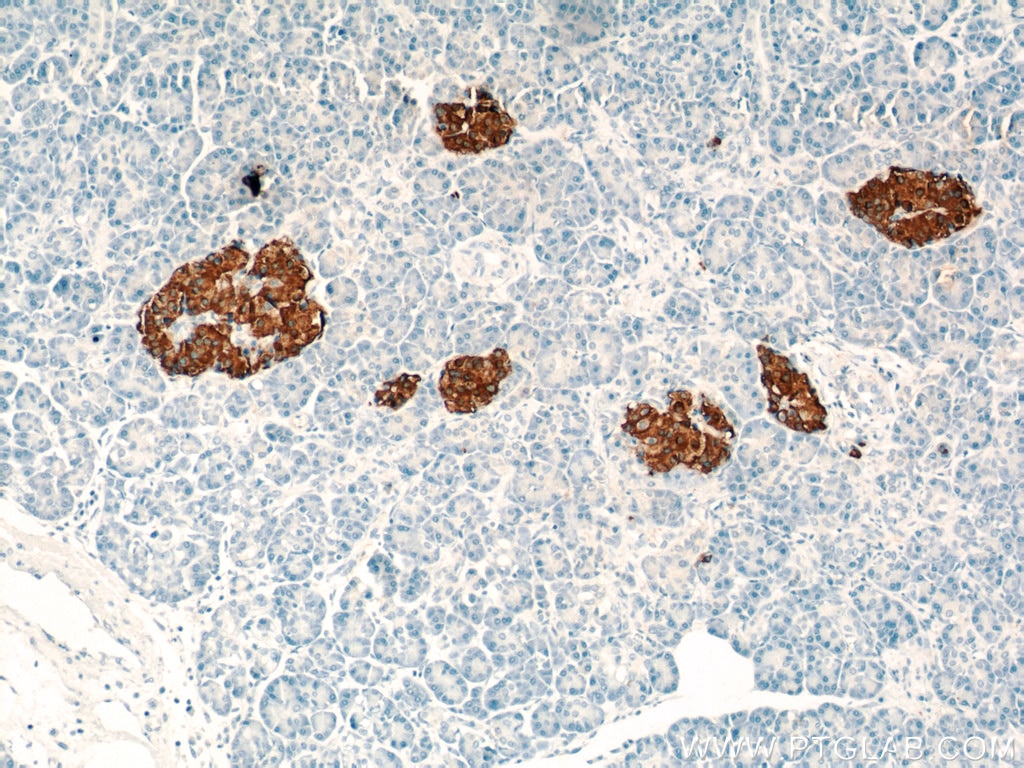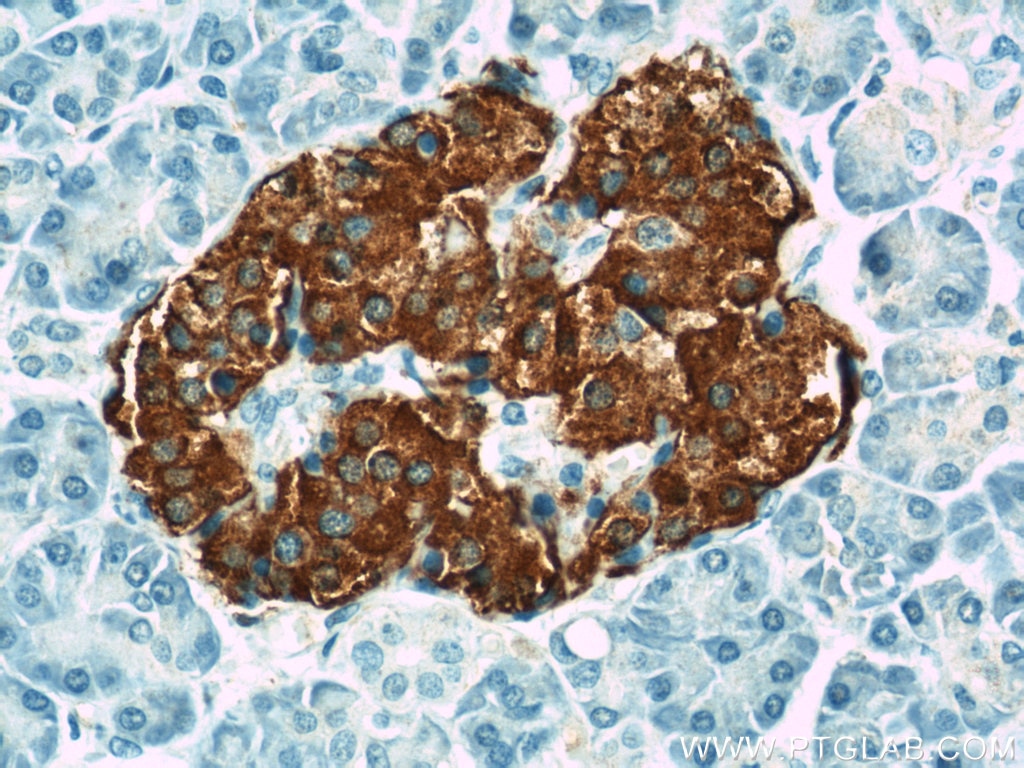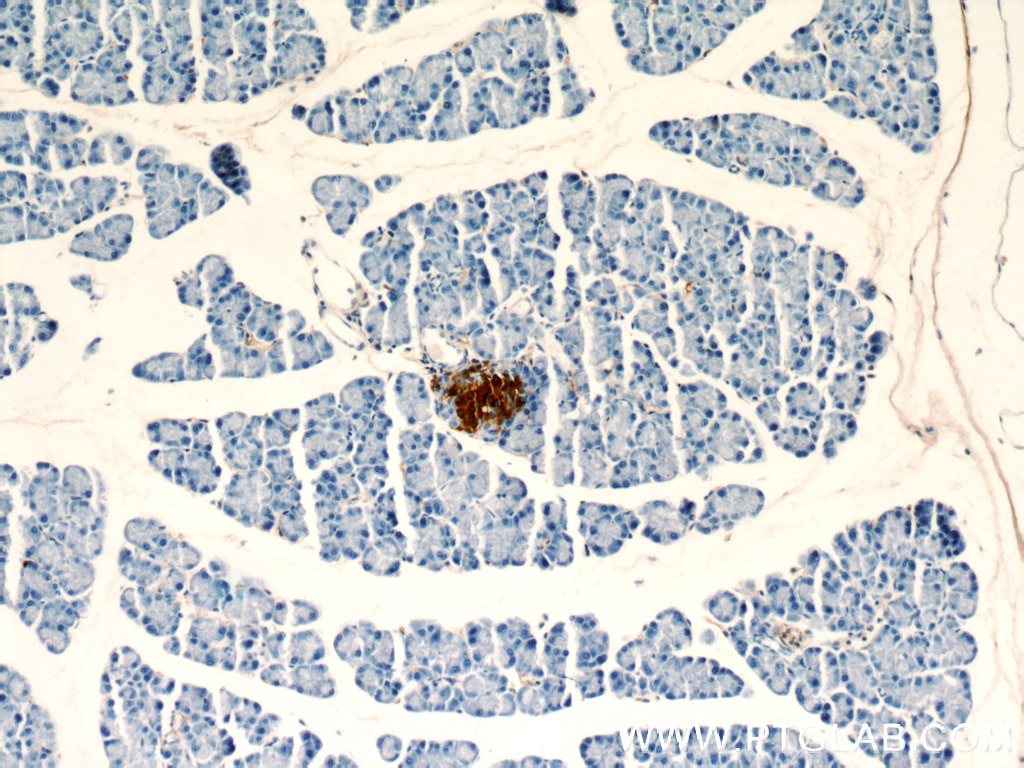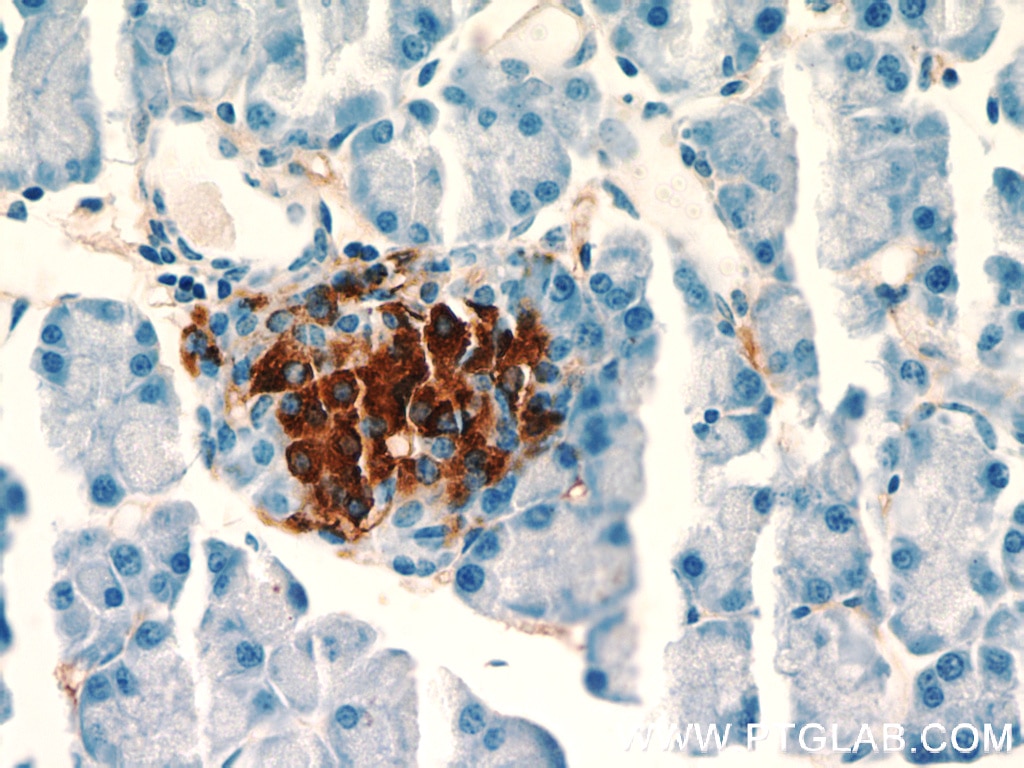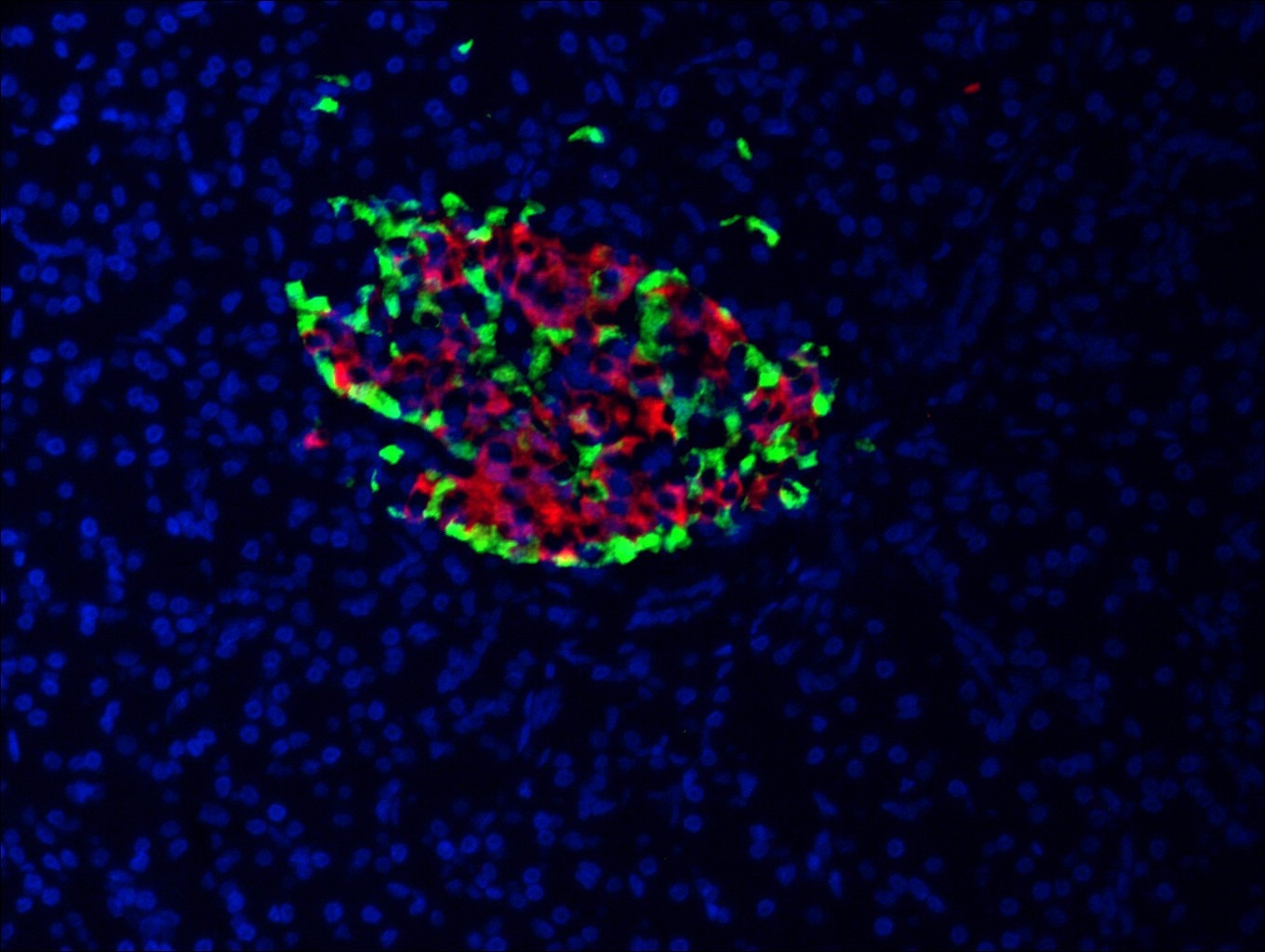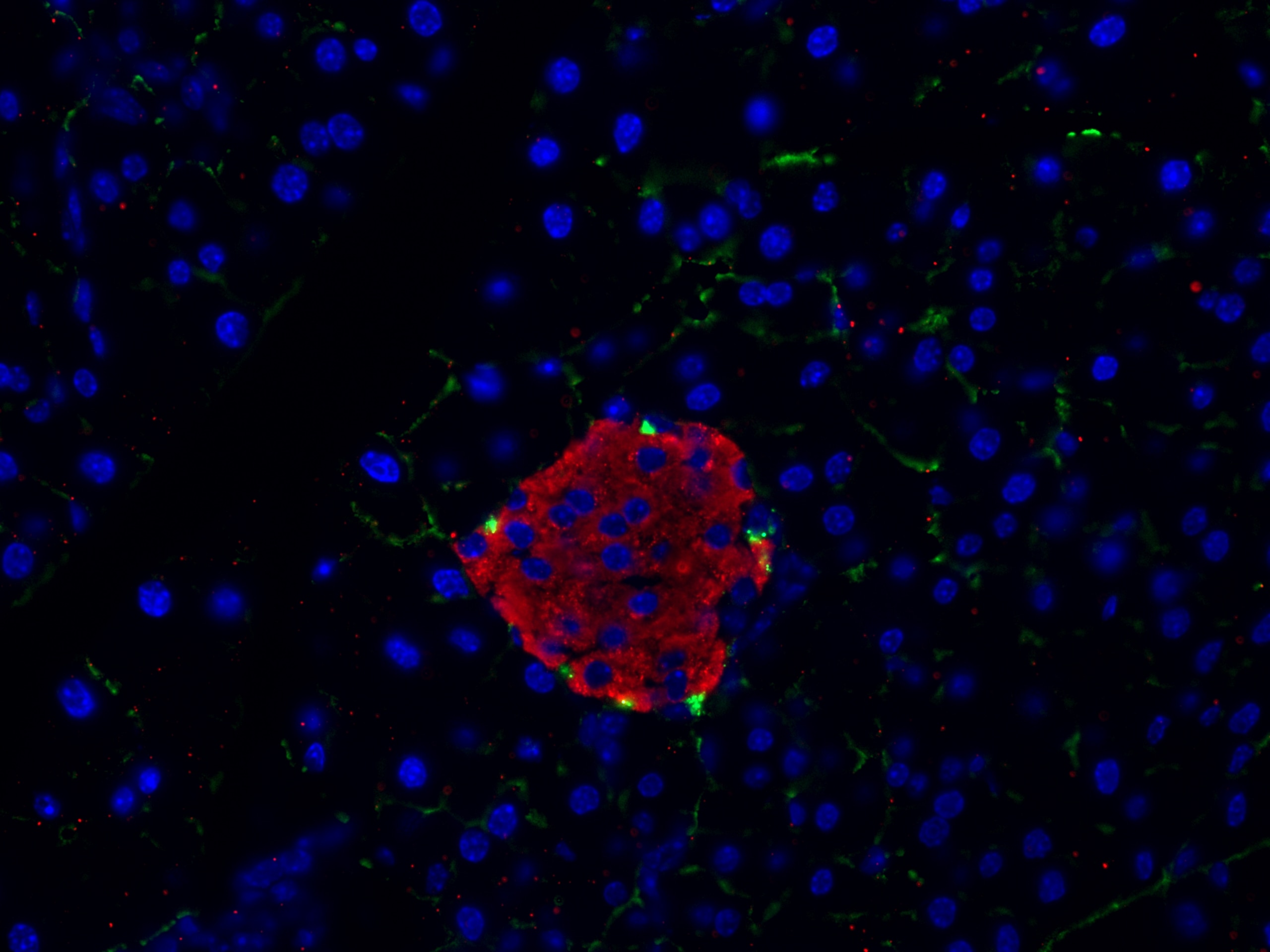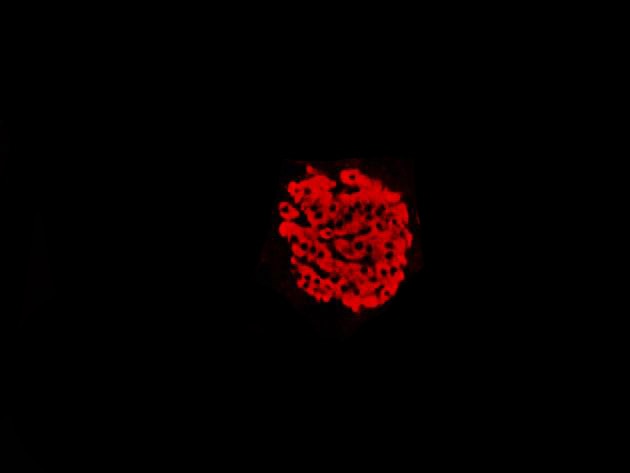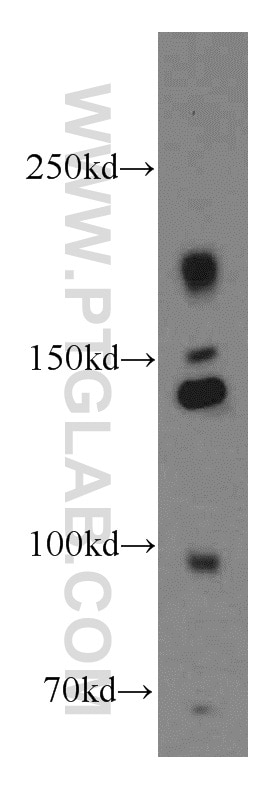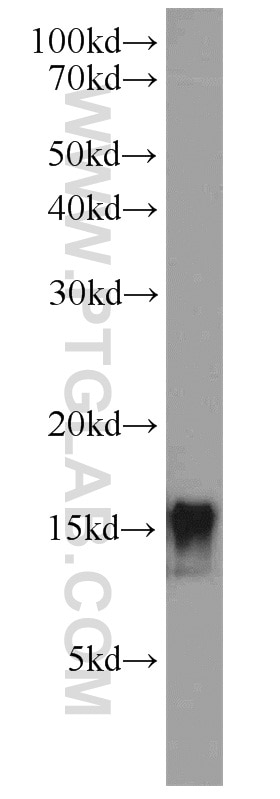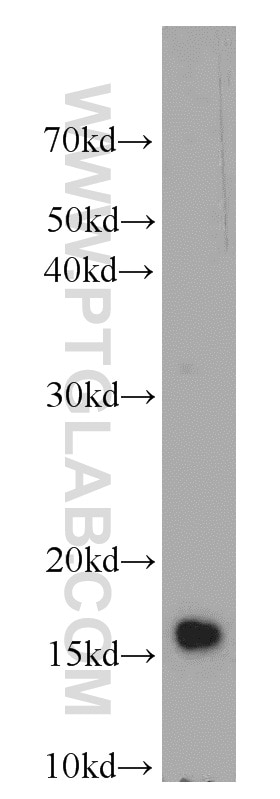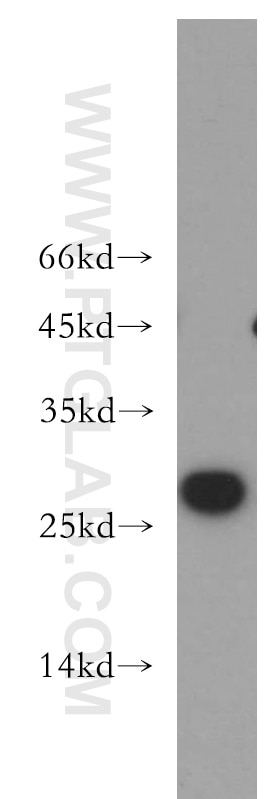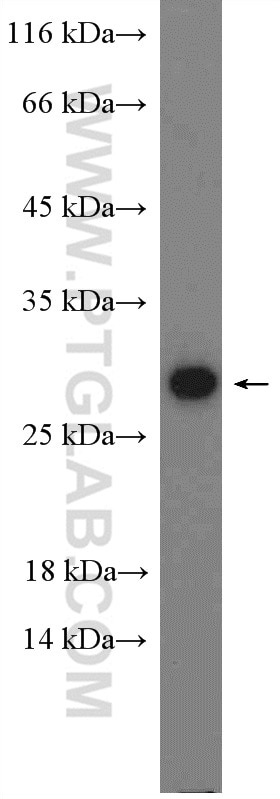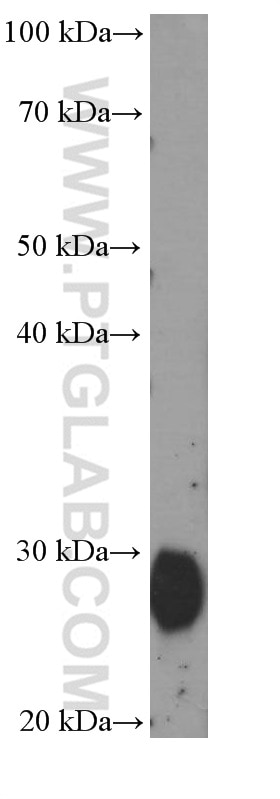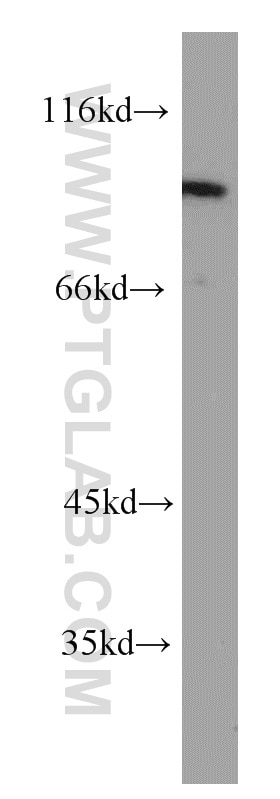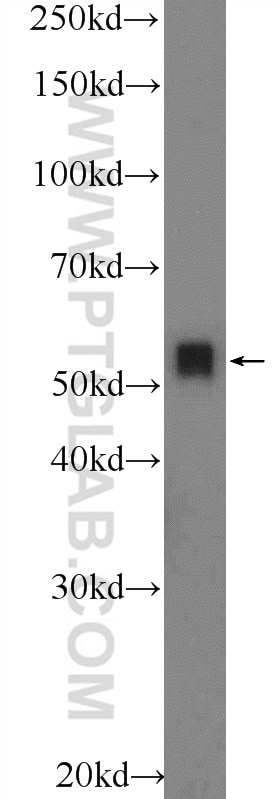Anticorps Polyclonal de lapin anti-INS
INS Polyclonal Antibody for IF, IHC, ELISA
Hôte / Isotype
Lapin / IgG
Réactivité testée
Humain, rat, souris
Applications
IHC, IF-P, ELISA
Conjugaison
Non conjugué
N° de cat : 15848-1-AP
Synonymes
Galerie de données de validation
Applications testées
| Résultats positifs en IHC | tissu pancréatique humain, tissu pancréatique de rat, tissu pancréatique de souris il est suggéré de démasquer l'antigène avec un tampon de TE buffer pH 9.0; (*) À défaut, 'le démasquage de l'antigène peut être 'effectué avec un tampon citrate pH 6,0. |
| Résultats positifs en IF-P | tissu pancréatique humain, tissu pancréatique de rat, tissu pancréatique de souris |
Dilution recommandée
| Application | Dilution |
|---|---|
| Immunohistochimie (IHC) | IHC : 1:500-1:1000 |
| Immunofluorescence (IF)-P | IF-P : 1:50-1:500 |
| It is recommended that this reagent should be titrated in each testing system to obtain optimal results. | |
| Sample-dependent, check data in validation data gallery | |
Applications publiées
| IHC | See 28 publications below |
| IF | See 28 publications below |
| ELISA | See 1 publications below |
Informations sur le produit
15848-1-AP cible INS dans les applications de IHC, IF-P, ELISA et montre une réactivité avec des échantillons Humain, rat, souris
| Réactivité | Humain, rat, souris |
| Réactivité citée | rat, Humain, souris |
| Hôte / Isotype | Lapin / IgG |
| Clonalité | Polyclonal |
| Type | Anticorps |
| Immunogène | INS Protéine recombinante Ag8630 |
| Nom complet | INS |
| Masse moléculaire calculée | 110 aa, 12 kDa |
| Numéro d’acquisition GenBank | BC005255 |
| Symbole du gène | INS |
| Identification du gène (NCBI) | 3630 |
| Conjugaison | Non conjugué |
| Forme | Liquide |
| Méthode de purification | Purification par affinité contre l'antigène |
| Tampon de stockage | PBS avec azoture de sodium à 0,02 % et glycérol à 50 % pH 7,3 |
| Conditions de stockage | Stocker à -20°C. Stable pendant un an après l'expédition. L'aliquotage n'est pas nécessaire pour le stockage à -20oC Les 20ul contiennent 0,1% de BSA. |
Informations générales
INS is a peptide hormone, produced by beta cells of the pancreas, and is central to regulating carbohydrate and fat metabolism in the body. It participates in glucose utilization, protein synthesis and in the formation and storage of neutral lipids. INS is synthesized as a precursor molecule, proinsulin, which is processed prior to secretion. A- and B-peptides are joined together by a disulfide bond to form INS, while the central portion of the precursor molecule is cleaved and released as the C-peptide. Defects in INS results in type 1 diabetes mellitus.
Protocole
| Product Specific Protocols | |
|---|---|
| IHC protocol for INS antibody 15848-1-AP | Download protocol |
| IF protocol for INS antibody 15848-1-AP | Download protocol |
| Standard Protocols | |
|---|---|
| Click here to view our Standard Protocols |
Publications
| Species | Application | Title |
|---|---|---|
Nat Protoc Isolation of mouse pancreatic islet Procr+ progenitors and long-term expansion of islet organoids in vitro. | ||
Autophagy Secretory autophagy promotes RAB37-mediated insulin secretion under glucose stimulation both in vitro and in vivo | ||
Theranostics Circular RNA circPPM1F modulates M1 macrophage activation and pancreatic islet inflammation in type 1 diabetes mellitus. | ||
ACS Appl Mater Interfaces Localized Controlled Release of Bilirubin from β-Cyclodextrin-Conjugated ε-Polylysine To Attenuate Oxidative Stress and Inflammation in Transplanted Islets. |
Avis
The reviews below have been submitted by verified Proteintech customers who received an incentive forproviding their feedback.
FH Boyan (Verified Customer) (05-14-2021) | very good for IF
|
FH Isha (Verified Customer) (01-06-2021) | Worked really well with mice pancreas. Selectively stained islets beta cells, no background staining
|
